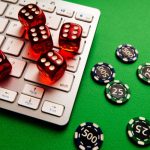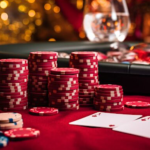When it comes to gambling, numbers play a significant role in the choices players make. Comprehending the psychological aspects can empower slots new players to gamble more wisely and safely.
Table of Contents
The Magic of Lucky Numbers
Many people believe they have a “lucky number” that brings them good fortune. In gambling, having a lucky number can increase confidence. This isn’t just wishful thinking; it’s a powerful psychological boost that encourages players to place bets.
The Role of Culture and Traditions
Different cultures have different beliefs about numbers. For instance, in many Western cultures, the number 7 is often considered lucky. In many East Asian cultures, the number 4 is seen as inauspicious, as it sounds like the word for death. These cultural beliefs can significantly affect how players feel about specific numbers while gambling.
The Illusion of Control
Another reason players feel confident with certain numbers is the illusion of control, a psychological bias in which people believe they can influence outcomes that are actually determined by chance. Choosing a preferred number can make the gambling experience more enjoyable and engaging.
Personal Experiences and Superstitions
Personal experiences heavily influence number preferences. If a player won big with a particular number in the past, they might see that number as lucky. Superstitions also play a role; even if a number hasn’t been lucky before, belief in its magical qualities might lead a player to choose it again.
The Influence of Cognitive Biases
Cognitive biases are mental shortcuts our brains use to process information quickly, sometimes leading to irrational decisions.
The Gambler’s Fallacy

It’s a common fallacy to believe that the frequency of an event affects its likelihood in the future. For example, if a number hasn’t come up recently, a player might believe it’s “due” to appear, boosting confidence in that choice.
The Hot Hand Fallacy
This bias involves believing that a person who has experienced success is more likely to succeed again. If a player has won with a certain number multiple times, they might feel that number is on a winning streak.
The Emotional Aspect
Emotions play a huge role in decision-making, especially in gambling. Numbers associated with happy memories or milestones can bring joy and confidence, while numbers linked to bad experiences might be avoided.
Personal Connections
People often choose numbers with personal significance, like dates related to loved ones or special events. An emotional attachment can make a number feel like a safe choice, enhancing the enjoyment of the gambling experience, even though the outcome remains random.
The Role of Randomness and Patterns
It’s human nature to find connections, even in chaotic events. This is known as pattern recognition.
Finding Order in Chaos
Our brains try to find order in chaos. When we see a series of random numbers, we often perceive patterns that make certain numbers seem more likely to appear.
Trust in Patterns
When a number fits into a pattern we recognize, it may seem like a wiser choice. This can lead to perceived control in the unpredictable world of gambling.
The Bottom Line
Players’ confidence in specific numbers is a mix of cultural beliefs, personal experiences, cognitive biases, and emotional connections. Remembering that gambling outcomes are random, and having confidence in a particular number doesn’t change the odds. Always prioritize fun over winning and gamble responsibly. Self-awareness and understanding why you favor specific numbers can help maintain a healthy gambling experience.





